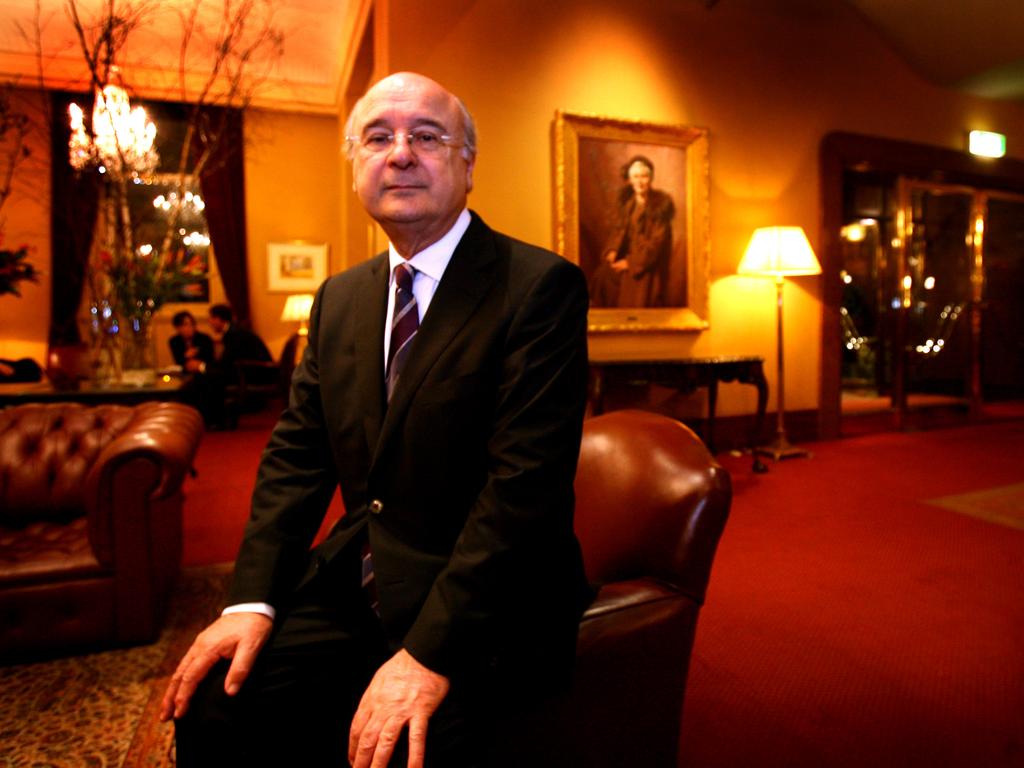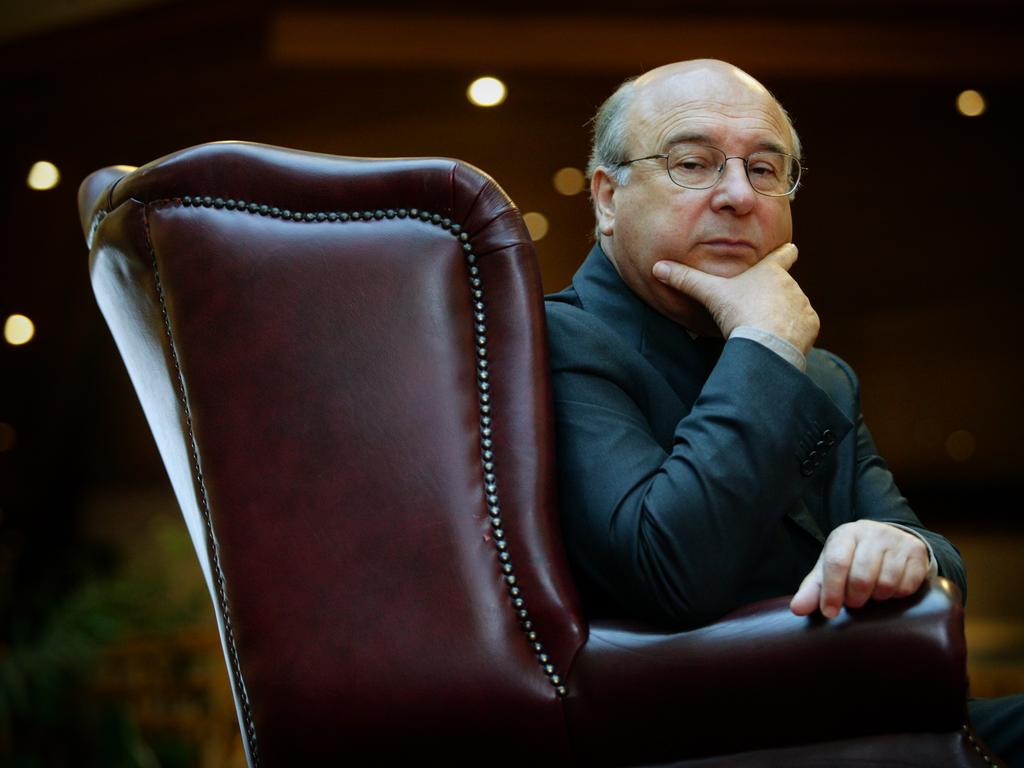
To achieve that task, Ranke observed, three qualities were indispensable – common sense, courage and honesty: the first, to grasp things at all; the second, to not become frightened at what one sees; the third, to avoid the temptations of self-deception.
Most of all, however, the historian needed to recognise that “Every epoch is equally close to God”, equally infused by grandeur and equally scarred by tragedy. It is not “the office of judging the past, or of instructing the present for the benefit of future ages” that has been assigned to historians; it is that of carefully reconstructing, rationally analysing and dispassionately presenting the past in all of its remoteness and complexity.
Never was that task harder than in this country’s “history wars”. Triggered, in the self-congratulatory words of the ANU’s Tom Griffiths, by a “concerted scholarly quest to dismantle the Great Australian Silence” – a silence that had “hardened into denialism … denial of bloody warfare on Australian soil” – the revisionist historians’ portrayal of Australia’s history as a never-ending tale of murderous dispossession, cultural decimation and environmental destruction inevitably took its toll on accuracy and objectivity.
There was, in the revisionists’ onslaught, little room for the Rankean virtues, first and foremost that of meticulous attention to the documentary records. It was therefore unsurprising that The Fabrication of Aboriginal History’s relentless focus on those records thrust Windschuttle into the firing line.

Nor was it surprising that he paid a high price for his audacity. As Tim Rowse, one of Australia’s most distinguished scholars of Aboriginal history, noted, “at least one speaker” at a 2001 National Museum of Australia conference on Windschuttle’s work “was patronising towards Windschuttle to a degree that exceeded anything I’ve experienced in academic life”; instead of addressing his arguments, the focus was on comparing Windschuttle to David Irving, thereby placing him “outside the conversations of humanists”.
Yet it would be wrong to suggest Windschuttle’s colossal efforts were ignored. As Rowse, who could hardly be accused of being a reactionary, admitted, Windschuttle’s review of the NSW archival evidence on the Stolen Generations was “compelling”, raising real questions about an episode that has become emblematic of “the heavy-handed and insensitive management of Indigenous Australians”.
Moreover, even the attempts to debunk the Fabrication’s contentions yielded tangible benefits. Windschuttle’s Quadrant articles were “widely derided as politically mischievous”, writes Mark Finnane, a legal historian whose work on the interactions between Indigenous Australians and the law has reshaped the field; but their longer-term impact “has been to accelerate research in local and regional studies”, providing a sounder factual base for broader analyses.
At least partly as a result, there are some outstanding works, including by historians broadly on the left, that are far removed both from the revisionists’ overwhelming Manicheanism and from the flights of fancy of the post-modernists Windschuttle had so effectively denounced in The Killing of History (1994).
For example, Rowse’s White Flour, White Power (1998) – with its conclusion that “‘assimilation’ was in some respects a constructive policy era, not only a destructive onslaught on Indigenous ways of life” – remains an exceptionally fine book, and several of his more recent essays, such as the one on the “protection” policy’s role in reversing the decline in the Indigenous population, directly challenge the revisionists’ core assumptions.
Equally, Finnane’s Indigenous Crime and Settler Law (2012), co-authored with Heather Douglas, provides a balanced account of the repeated efforts the colonial authorities made – albeit with only mixed success – to deal sensitively and humanely with the gap between tribal custom and English law.


Noting that putting “the colonial encounter in polarised terms” as a clash between black and white “is an abstraction from a complex and constantly shifting reality”, Finnane and Douglas highlight the need to recognise that “settlers were divided – convicts, free immigrants, military, governors”, as were “Indigenous peoples – jealous of their own country, accustomed in many places to constant warring, seeking advantage of alliances with settlers to advance or protect their own interests”.
And Andrew Fitzmaurice’s Sovereignty, Property and Empire, 1500–2000 (2014) is a deeply researched corrective to simple-minded claims (including, unfortunately, by the High Court) about the relevance of “terra nullius” to Britain’s assertion of sovereignty.
But despite those efforts, the sloppiness continues, as even a cursory glance at the ever-expanding literature on the Native Mounted Police shows.
For example, the military historian Peter Stanley – who has been influential in the Australian War Memorial’s portrayal of the “frontier wars” – has recently claimed that “the Native Police were Australia’s own Einsatzgruppen”, the Nazi murderers who machine-gunned hundreds of thousands of Jews that they had herded on to the edge of pits, stripped naked and beaten to within an inch of their lives. That Stanley’s claim is abhorrent for minimising the horrors of the Holocaust should not need to be said; that it is grotesque for its obvious historical inaccuracy ought to be apparent to even the least informed reader.
Striking too are the contentions of Queensland historian Raymond Evans. The mounted police, Evans claimed in 2010, were responsible for 24,000 deaths. But since then, Evans, in work with Robert Orsted-Jensen, has nearly doubled that estimate to 41,040, allegedly on the basis of a methodology that is “conservative” and “cautious”.


In an attempt to justify relying on highly selective samples and superficial extrapolations, Orsted-Jensen has claimed that there was a “a very systematic, deliberate and comprehensive destruction of virtually all sensitive files stored in Queensland’s Police Department” – an accusation that has become one of the revisionist historians most widely repeated tropes.
However, a devastating review of Evans and Orsted-Jensen’s work by Finnane and Jonathan Richards not only points to the wealth of documentary material on which Evans and Orsted-Jensen could have drawn; it also concludes that any gaps in the records are more likely “an accumulated outcome of administrative culling, bureaucratic indifference, and misadventure” than of systematic destruction.
In fact, “rather than a history of cover-up, the entire administration of the Native Police from as early as 1861 on illustrates the concern of governing elites with the risk of unwarranted killing”.
As for Evans and Orsted-Jensen’s estimates of casualties, Finnane and Richards show that they are “highly subjective … and correspondingly unreliable”, while “the picture (Evans and Orsted-Jensen) paint of massive governmental indifference to or complicity in the deaths of tens of thousands of Aboriginal deaths does not stand up to scrutiny”.
But if questionable assertions remain common in the professional literature, they absolutely pervade the public commentary. Predictably, the ABC publicised Evans and Orsted-Jensen’s estimates; no less predictably, it has done nothing to correct the record. And if the academic historians are willing to rebut inaccuracies in scholarly publications, they are far more reluctant to do so when that involves intervening in the public debate.
That was apparent in the wake of Keryn Walshe and Peter Sutton’s Farmers or Hunter Gatherers? (2021), which vividly exposed the flaws of fact and analysis in Bruce Pascoe’s Dark Emu. The reviews in scholarly journals, such as that by Peter Veth in Australian Archaeology (2021), did not mince their words about Pascoe’s egregious errors; but more often than not, the media commentary by academic historians was cautiously circumspect.
There were, for sure, attacks on Walshe and Sutton that merely reproduced the left’s deeply ingrained orthodoxy. To take but one example, Heidi Norman from UTS accused Walshe and Sutton of “wanting to strip the debate of contemporary meaning” by deploying a neo-colonial framework in which “Western definitions and labels are supreme”.
However, the academics’ dominant tone was mealy-mouthed, conceding that Pascoe had made mistakes but arguing that those mistakes counted less than Dark Emu’s merits in advancing reconciliation.


Thus, reviewing Farmers or Hunter Gatherers? in The Guardian, Sydney University’s Mark McKenna carefully put the word ‘fact’ in scare quotes, as if there was some doubt as to its meaning; while “at face value, this is a dispute about ‘facts’”, he wrote, the dry-as-dust issues of evidence and verisimilitude are far less important than “Pascoe’s ability to capture and move audiences desperate to hear his stories of Aboriginal ‘achievement’”.
In exactly the same way, the Tasmanian historian James Boyce recognised shortcomings in Pascoe’s work but nonetheless hailed it as a “significant cultural achievement”, whose “lifegiving” story “speaks to people for whom Aboriginal Australia remains a foreign country but want this to change”.
And Henry Reynolds, writing in Meanjin, essentially pooh-poohed the criticisms, arguing that Pascoe’s faux pas was primarily one of terminology: had Pascoe “declared that the First Nations peoples were not ‘just’ hunters and gatherers but graziers rather than farmers”, the problems with his account would have been largely overcome.
The undertone, in those comments, was clear: that it would be unfair to disabuse Pascoe’s adoring white fans, whose intentions were as pure as their thoughts were confused. Keeping faith with those intentions might involve distorting the truth; but the lie, like those Plato advocates in The Republic, would be a noble one, which ruling elites tell “in order to benefit the polis” by convincing citizens that “it is not pious to quarrel”.

Ironically, in their effort not to discomfort the masses, the revisionists had enveloped themselves in a Great Australian Silence of their own.
Yet the harm those deliberate distortions of the historical record cause is not just to truthfulness; it is to our ability to live with the past, rather than to live in the past. For so long as we cannot accurately and dispassionately view this country’s history, we will lack the foundations needed to better shape its future.
And it is not much comfort to know that when intellectual constructs stray too far from careful readings of the world, as they so tragically have in everything to do with Indigenous history and policy, reality has a nasty habit of biting back.
In the end, Nietzsche was right: the basic question societies, no less than individuals, must face, is “How much truth can we endure? Error is not blindness; it is cowardice.” Exposing cowardice takes courage. Now, with Keith Windschuttle gone, that duty must fall to others.







With the death last week of Keith Windschuttle Australia lost a scholar driven by the duty Leopold von Ranke famously defined as the historian’s highest calling: to write about the past “wie es eigentlich gewesen” – “as it had really been”.